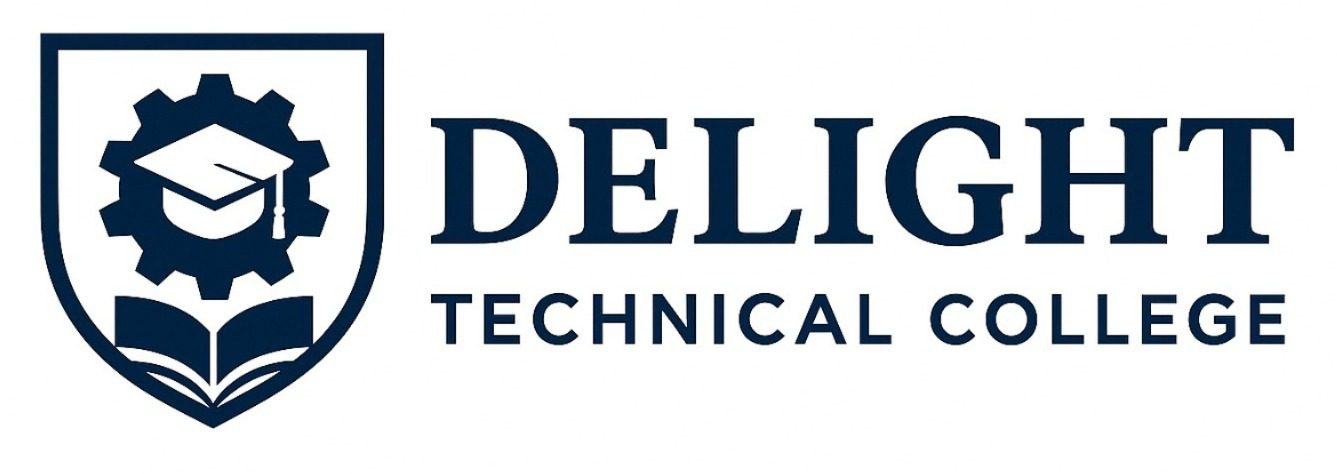From Local to Continental: Delight’s Growth Story
Delight Technical College has evolved from a small, local institution into a major educational hub with a continental presence, contributing significantly to the development of technical and vocational education (TVET) across Africa. Its growth story reflects the transformative impact that education can have on individuals, communities, and even entire regions. From its humble beginnings in Nairobi, Kenya, Delight has expanded its reach, transforming the lives of students and providing them with the skills necessary to thrive in a global economy.
Here’s a look at how Delight Technical College has grown from a local institution to a continental powerhouse in TVET:
- A Vision Rooted in Local Needs
When Delight Technical College first opened its doors, the mission was clear: to provide quality, accessible training that would meet the local demand for skilled professionals in fields like fashion, media, technology, and design. The initial focus was on filling gaps in the Kenyan job market, particularly in creative industries where skilled labor was scarce.
- Local Engagement: The college worked closely with local businesses to understand their workforce needs and tailor training programs that were directly aligned with industry requirements.
- Hands-On Learning: With a focus on practical, hands-on training, Delight quickly became a trusted source for highly skilled graduates ready to enter the workforce.
- Expanding Beyond Kenya: Reaching the East African Region
As the demand for skilled professionals grew across East Africa, Delight expanded its reach to neighboring countries. The institution began attracting students from Uganda, Tanzania, Rwanda, and South Sudan, creating a diverse, regional student body.
- Regional Integration: Delight became a hub for East African students, fostering regional integration and cultural exchange through its multicultural learning environment.
- Cross-Border Collaboration: The college partnered with local industries and international organizations to offer students access to regional internships, job placements, and cross-border career opportunities.
- Accreditation & Recognition: As the college’s reputation grew, it gained regional recognition, with its qualifications becoming increasingly respected across the East African Community (EAC).
- Embracing Digital Innovation and Expanding Online Learning
The rise of digital technology and online learning platforms gave Delight the opportunity to extend its reach beyond the confines of physical campuses. Recognizing the potential for broader impact, Delight began offering online courses and blended learning options, allowing students from across Africa to access high-quality training without the need to travel to Nairobi.
- Digital Media and E-Learning: Delight’s digital courses in fashion, media, technology, and entrepreneurship became a game-changer for students in remote areas, providing affordable access to world-class education.
- Virtual Classrooms: The integration of virtual classrooms enabled Delight to reach students not only in East Africa but also in West and Central Africa, setting the stage for continental expansion.
- Global Alumni Network: As a result, Delight built an alumni network that spans multiple African countries, creating a global community of graduates who continue to support the college’s growth and share their success stories.
- Continental Expansion: A Pan-African Presence
As Delight’s reputation grew, it soon became clear that its impact needed to go beyond East Africa. The college expanded its offerings to attract students from West Africa, Central Africa, and the Horn of Africa. This transition was driven by:
- Partnerships with International Institutions: Delight formed key partnerships with African governments, international development organizations, and global companies to increase its visibility across the continent.
- Curriculum Diversification: The college diversified its programs to cater to a broader range of industries and skills in demand across Africa, such as renewable energy, digital marketing, creative industries, and entrepreneurship.
- International Accreditations: To ensure that its programs met global standards, Delight pursued and achieved international accreditations from recognized educational bodies, making its qualifications more valuable to employers both within Africa and abroad.
- Empowering Youth Across Africa
Delight’s growth has been driven by its commitment to empowering young people with the skills and knowledge necessary to succeed in the rapidly changing job market. The college has positioned itself as a leading institution for youth empowerment in Africa, providing:
- Scholarships: Delight introduced scholarships for students from underprivileged backgrounds across the continent, ensuring that financial constraints did not prevent talented individuals from pursuing their education.
- Entrepreneurship Training: As part of its mission to foster job creation, Delight offers specialized programs in entrepreneurship, helping students to develop their own businesses and contribute to Africa’s growing entrepreneurial ecosystem.
- Gender Equality: Delight has been at the forefront of promoting gender equality in education, with targeted initiatives to support female students in male-dominated fields like technology and engineering.
- A Hub for Innovation and Creativity
Delight has become a hub for innovation, particularly in industries like fashion, media, and technology. The college’s emphasis on creative thinking and practical skills ensures that graduates are not only equipped to enter the workforce but also to lead in innovation.
- Fashion Technology: The integration of digital tools like CAD, 3D printing, and fashion design software has allowed students to push the boundaries of traditional design and explore new ways of creating, marketing, and distributing fashion.
- Media and Technology: With the rise of digital media, Delight has become a training ground for the next generation of digital marketers, content creators, media professionals, and tech entrepreneurs.
- Community-Based Innovation: Many of Delight’s students go on to launch businesses and initiatives that have a direct impact on their communities, from fashion startups to technology solutions addressing local challenges.
- Shaping the Future of Africa’s Workforce
As the fourth industrial revolution continues to reshape economies worldwide, Delight remains committed to preparing students for the future of work. Through its programs in ICT, renewable energy, and innovation, the college is equipping the next generation of African leaders with the tools needed to succeed in the modern economy.
- Digital Literacy: Delight prioritizes digital literacy across all its programs, ensuring students are proficient in the latest tools and technologies.
- Sustainable Development: With a growing focus on sustainable development, Delight’s curriculum incorporates green technologies and environmental practices, empowering students to contribute to Africa’s sustainable future.
Conclusion: A Bright Future Ahead
Delight Technical College’s journey from a local institution to a continental leader in TVET reflects the power of education to drive economic development, regional integration, and youth empowerment across Africa. As the college continues to expand its reach and diversify its offerings, it remains committed to providing world-class education that empowers students to succeed not just locally, but on the global stage.
Looking ahead, Delight’s growth story is far from over. With plans for further expansion into new markets, enhanced digital learning platforms, and continued partnerships with industry leaders, Delight is poised to play an even greater role in shaping the future of Africa’s workforce and creative economy.
Tag:African Youth Empowerment, creative industries, Delight Technical College, digital skills, East Africa education, education innovation, entrepreneurship in Africa, Fashion Technology, Kenyan education, media training, Nairobi college, Online Learning Africa, Pan-African Education, TVET in Africa, vocational training



